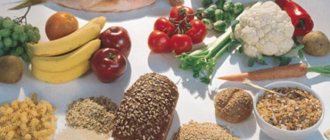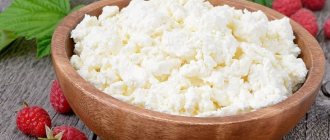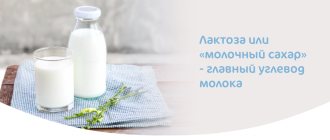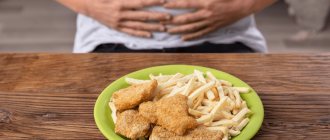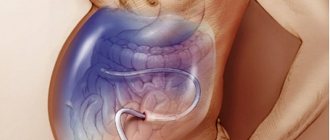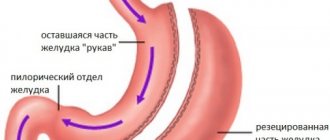Constipation is the absence of bowel movements for 36-48 hours, accompanied by other unpleasant symptoms - nausea, abdominal pain, flatulence. Anyone can face this condition. The number one task in this situation is to empty the intestines of feces. Few people know that simple water will help solve it.
Get rid of intestinal problems
The natural British drug is not addictive and works immediately
Find Fitomucil with benefits
What can interfere with organizing proper nutrition for an oncology patient?
The course of the oncological process is often accompanied by a decrease in appetite and depression, so the amount of food consumed may decrease sharply. But even if the amount of food does not change, you need to keep in mind that ordinary foods have a relatively low nutrient density, that is, they do not contain enough nutrients necessary to meet the increased needs of the body in conditions of cancer. It is possible to provide the body with a sufficient amount of nutrients only with the help of specialized products - nutritional mixtures, but not all patients are committed to consuming them. At the same time, doctors often encounter low awareness among patients about the dangers of certain diets and the toxic effects of food additives.
There are other reasons that complicate catering:
- dental defects;
- xerostomia (dry mouth);
- impaired absorption in the gastrointestinal tract;
- inflammation of the mucous membranes due to radiation therapy/chemotherapy;
- nausea, vomiting;
- constipation/diarrhea.
It is important to convince relatives of the futility and even harm of force feeding; it is necessary to understand that the patient has the right to eat as much as he can.
To achieve the best results in correcting nutritional deficiency, it is necessary to:
- choose easily digestible foods and their combinations that have high nutritional value;
- the diet should be prepared taking into account the patient’s taste preferences;
- eating should be leisurely, with thorough chewing;
- dishes should be beautifully served, placed in small plates;
- Fluid intake should be delayed by about 1 hour;
- food must be taken frequently (up to 6 times a day) in small portions as tolerated;
- extreme temperatures and strong tastes should be avoided;
- Food should always be on hand so that the patient can eat immediately when hungry.
To stimulate the activity of the glands and mucous membrane of the gastrointestinal tract, it is allowed to include acidic foods in the diet: dry wines, fermented milk products, kvass, sour juices and syrups from fruits and berries, sour and pickled vegetables.
If possible, the patient should eat at a table and dress for each meal.
You should not weigh the patient frequently, as this may increase the psychological burden.
Complications
Having bowel movements too infrequently can have serious consequences. This can contribute to the development or exacerbation of diverticular disease of the intestine, hemorrhoids, and the formation of anal fissures. Overdistension of the colon due to the accumulation of feces makes it even more difficult to have a timely bowel movement. The consequence of chronic constipation can be the formation of oncological processes in the intestine, due to changes in the functioning of intestinal cells, malabsorption, the development of dysbiosis and excessive growth of its own and pathogenic microflora, activation of putrefaction processes, an increase in nitrogenous wastes that enter the blood and cause chronic intoxication. Therefore, constipation must be dealt with promptly.
Food selection issues
Recommended products include:
- fish (a valuable source of protein, polyunsaturated fatty acids);
- seafood (protein, PUFAs, selenium, zinc);
- chicken, turkey (breast);
- cheese;
- cottage cheese;
- broccoli, cauliflower, Brussels sprouts;
- flaxseed, sesame and sea buckthorn oil (sources of fat);
- fruits;
- cocoa.
Protein is an important component of the patient’s diet, as it is the main building material for the body.
To increase protein digestibility, the following combinations of products can be recommended:
- dairy products (or eggs) + cereals;
- legumes (soybeans, lentils, beans) + eggs;
- eggs + potatoes;
- spaghetti + cheese.
- What a patient should absolutely not eat:
- raw meat and fish, sushi;
- shrimp and crabs;
- raw eggs and milk;
- unwashed fruits and vegetables.
Consumption of these products may be associated with a high risk of infection, so it is important not to worsen the patient’s condition with improper nutrition!
For a number of reasons, cancer patients are susceptible to various infections, and with nutritional deficiency, the risk of infection increases sharply.
Long-digested foods should also be avoided, as they delay the evacuation of food from the stomach. Such products include sauerkraut, eggplant, pork, lard and smoked meats.
| Products | Duration of digestion, h |
| Sauerkraut, eggplant | 4,1-4,2 |
| Pork, lard | 4-4,3 |
| Smoked sausages | 4-4,2 |
| Hot smoked fish | 4,1-4,3 |
Constipation during pregnancy
About 20-60% of pregnant women suffer from constipation.
Causes of constipation in the early stages
- increased levels of progesterone have a relaxing effect on the smooth muscles of the intestines, causing hypotension, impaired peristalsis and regular bowel movements;
- taking iron and calcium supplements;
- sedentary lifestyle and bed rest; decreased appetite, insufficient food intake;
- limiting fluid intake for fear of developing edema;
- unstable state of the nervous system: stress, anxiety.
In the later stages
The above reasons include compression of the intestines by the growing uterus.
What are the dangers of constipation during pregnancy?
- food breakdown products and nitrogenous wastes are absorbed into the blood, this negatively affects both the mother and the fetus;
- flatulence and straining due to constipation can provoke an increase in uterine tone;
- constipation disrupts the normal balance of intestinal microflora in the mother and subsequently in the newborn.
Constipation is a fairly serious problem for a pregnant woman, since the range of medications approved for use by expectant mothers is quite limited. Therefore, it is imperative to consult a specialist without self-medicating.
Can I drink juices?
Juices are not suitable for treating dehydration or treating diarrhea.
Freshly squeezed juices can be consumed, but they must be diluted with water, approximately 1:1.
It is also important to drink clean water. Its amount should be at least 30 ml per kg of body weight. That is, if a person weighs 60 kg, then he needs to consume at least 1800 ml of clean water per day.
With malnutrition, sarcopenia can occur; translated from Latin, this concept means insufficiency of muscle mass in the body. This condition aggravates the patient's general status and can lead to serious consequences.
To avoid the development of sarcopenia, you must follow some rules:
- maintain a physical activity regime, since muscle tissue atrophies and its mass decreases under conditions of reduced physical activity;
- the energy value of the diet should be 25-35 kcal/kg/day;
- protein supply should be 1.2 – 1.5 g/kg/day.
Effect of nutritional support on tumor growth
At present, no evidence-based clinical data has been obtained indicating the effect of long-term artificial nutrition on tumor growth.
Recommendations for nutritional support:
A clinically significant effect occurs within 2 weeks.
The duration of the appointment is not limited.
Siping mixtures should be consumed slowly and in small sips through a straw for 20-30 minutes.
Nutrient mixtures can be consumed either chilled or warm, but not above + 40 °C.
Based on specialized nutrition, you can prepare milkshakes, add it to cereals, purees, salads and desserts.
Most patients need to continue nutritional support on an outpatient basis as part of rehabilitation.
Do overweight patients need nutritional support?
There is such a thing as sarcopenic obesity. This condition is characterized by the fact that lean body mass decreases, but this is not visually noticeable due to the presence of excess fat mass. Sarcopenic obesity significantly worsens the prognosis of the disease.
The composition of mixtures used for nutrition in patients with excess body weight includes the following components:
- amino acids and their derivatives: arginine, glutamine, ornithine, taurine;
- lipids: omega-3 unsaturated fatty acids (EPA), medium chain triglycerides (MCT), short chain triglycerides;
- antioxidants: alpha-tocopherol, glutathione, etc.;
- dietary fiber – only in enteral formulas.
Dietary recommendations for nausea and vomiting
Eat small and often, chewing thoroughly.
Food and drinks should be at room temperature or chilled.
Ventilate the room before and after eating.
Do not drink water while eating.
Eat while sitting.
Give preference to products with neutral taste and smell.
Focus on the aesthetic presentation of food.
Dietary recommendations for problems swallowing food (dysphagia):
- Do not eat rough food; it should be liquid or semi-liquid.
- Eat in a sitting or semi-sitting position.
- Take only warm food and drinks.
Dietary recommendations for mucositis (stomatitis):
- Eat foods that have a sticky or thick consistency.
- When cooking, food must be chopped.
- Use a straw when drinking liquid.;
- Avoid alcoholic drinks.
- Rinse your mouth after every meal.
- Avoid smoking.
Dietary recommendations for diarrhea:
When diarrhea develops, it is necessary to consume foods rich in potassium, since it is this microelement that the body loses in large quantities during this complication (these are bananas, beans, jacket potatoes, pumpkin).
Hard-boiled eggs and dietary chicken or turkey help with diarrhea. They are rich in proteins, so they help the body recover faster.
Include porridge cooked in water in your diet; rice and oatmeal are the best.
If you have diarrhea, it is important to avoid dehydration; to do this, you need to eat light soups or broths and drink water.
It is important to eat small portions so as not to overload the gastrointestinal tract.
Eat until you feel slightly full so that the body can regain strength and process the food received.
Food should be warm, since cold food is difficult to digest, and hot food irritates the gastrointestinal tract.
Prepare food by steaming, boiling and puree.
Add liquid and semi-liquid foods to your diet.
If diarrhea develops, the following should be excluded from the diet:
- very sweet and carbonated drinks,
- baked goods,
- fresh fruits and vegetables,
- nuts,
- fermented milk products, milk,
- coffee, juices,
- cabbage,
- smoked meats,
- fatty and fried foods,
- canned food,
- fast food.
Causes of constipation
- Pathological conditions Diseases of the gastrointestinal tract: peptic ulcer of the stomach and duodenum;
- chronic colitis;
- irritable bowel syndrome;
- chronic cholecystitis;
- dysbacteriosis;
- hemorrhoids, rectal fissures;
- intestinal malformations.
- monotonous, predominantly protein diet (nutritional constipation is the most common);
Hygiene is important
Cancer patients are at risk of infection, which can also be caused by food. Since there is no special diet that could protect cancer patients from infection, the main rule for its prevention is strict adherence to hygiene.
Literature sources:
- https://www.oncology.ru/moa/vestnik/558/
- Khomyakov V.M., Ermoshina A.D. Correction of nutritional deficiency in cancer patients using ready-made mixtures for oral nutrition (siping). Research and practice in medicine. 2015; 2(3): 82-88. DOI: 10.17709/2409-2231-2015-2-3-82-88.
- Fundamentals of nutritional support in an oncology clinic / Ed. corresponding member RAMS A.I. Salanova. – Moscow – 2009 – 239 p.
- Nutritional support for cancer. 2022 Society of Supportive Care Specialists in Oncology (RASSC) Clinical Practice Guidelines.
- Guide to Clinical Nutrition / ed. Prof. Lufta V.M. / St. Petersburg, “Art Express”, 2016. – 484 pp., with illustration.
- Sytov A.V., Leiderman I.N., Lomidze S.V. et al. Practical recommendations for nutritional support for cancer patients // Malignant tumors: Practical recommendations RUSSCO #3s2, 2019 (vol. 8). pp. 639–647.
- Clinical guidelines of the National Association of Parenteral and Enteral Nutrition (Russia).
What is constipation
Regular bowel movements are a vital function for maintaining a healthy body.
The consistency of healthy stool should be soft, “sausage” shaped. Constipation occurs when stool hardens in the colon and does not pass out. Constipation can be caused by dehydration, stress, lack of fiber, overeating and eating unhealthy foods. Constipation is often a side effect of medications. Constipation can affect people at any age, but it occurs more often in older people. A third of adults over 60 years of age suffer from this disease. In addition, women, especially those who are pregnant or have recently given birth, as well as people who do not move much, are at risk.
Constipation is a very unpleasant condition, but fortunately, there are many home remedies that can solve the problem.
Water
When a person becomes dehydrated, their body begins to pull water from all tissues of the body, including the colon.
To solve the problem, drink more water - 6-8 glasses a day.
Coffee
Caffeine can stimulate bowel movements - it causes the intestinal muscles to contract. However, coffee also dehydrates the body, so you should drink a lot of water along with it so as not to worsen the condition.
Tea
The warm liquid itself calms the digestive system. Black and green tea also contain caffeine, which stimulates bowel function. But there are also supplements that additionally help with constipation:
- ginger – this spice speeds up digestion;
- peppermint - menthol soothes the stomach when upset and helps move stool through the intestines;
- chamomile – it relaxes muscles, including the intestines;
- licorice root – it has anti-inflammatory properties, which will help ease the digestive system after eating;
- Dandelion Root – Relieves mild constipation by stimulating the liver.
